Kirsten Hillman, Canada’s longtime ambassador to the United States, is leaving her post in the new year — marking a key shakeup amid tense trade relations with U.S. President Donald Trump’s administration. Hillman announced the move Tuesday, saying she will “remain available” to Canada’s negotiating team as they navigate the potentially rocky period ahead. “It has been the greatest privilege of my professional life to have served and represented Canada and Canadians during this critical period in Canada-U.S. relations,” she wrote. …The lawyer helped the former Liberal government negotiate the updated North American trade agreement — now known north of the border as CUSMA. …She also served as chief negotiator for the Trans-Pacific Partnership. …Mark Wiseman is one name being considered as a replacement for Hillman, but the process hasn’t been finalized, sources told Radio-Canada. Wiseman is a member of Carney’s Canada-U.S. relations advisory council.

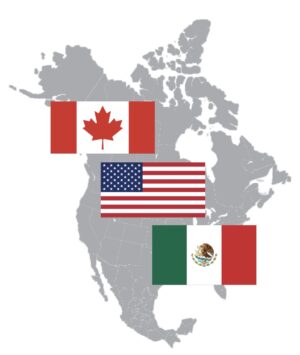 The negotiations that remade the North American Free Trade Agreement were, as one participant put it, a series of “near-death” experiences. …In the years since the U.S.M.C.A was signed, Mexico and Canada have become America’s top trading partners. Millions of jobs depend on this economic alliance, which exceeds $1.8 trillion in trade. …Last week, Trump suggested that he would exit the U.S.M.C.A.: “We’ll either let it expire or, well, maybe work out another deal with Mexico and Canada.” Some observers discount Trump’s bluster as mere gamesmanship. …He returned to the White House on a promise to create jobs and lower prices—to make the country “boom like we’ve never boomed before.” Instead, tariffs are fuelling inflation, and many experts believe that it is only a matter of time before the economy starts hemorrhaging jobs. …As in the previous round of negotiations, time does not appear to be on Trump’s side.
The negotiations that remade the North American Free Trade Agreement were, as one participant put it, a series of “near-death” experiences. …In the years since the U.S.M.C.A was signed, Mexico and Canada have become America’s top trading partners. Millions of jobs depend on this economic alliance, which exceeds $1.8 trillion in trade. …Last week, Trump suggested that he would exit the U.S.M.C.A.: “We’ll either let it expire or, well, maybe work out another deal with Mexico and Canada.” Some observers discount Trump’s bluster as mere gamesmanship. …He returned to the White House on a promise to create jobs and lower prices—to make the country “boom like we’ve never boomed before.” Instead, tariffs are fuelling inflation, and many experts believe that it is only a matter of time before the economy starts hemorrhaging jobs. …As in the previous round of negotiations, time does not appear to be on Trump’s side.
 As US President Trump sticks with his campaign of tariffs on imports from Canada, some American industries are accusing Canadian competitors of using cheap materials from China in ways that violate free trade rules and undercut U.S. companies. The accusations emerged during recent public hearings in Washington into the future of the Canada-U.S.-Mexico Agreement (CUSMA). …Luke Meisner, counsel for the American Kitchen Cabinet Alliance, told the hearings that Canada and Mexico have become conduits for products from China, circumventing the hefty countervailing duties the US imposed on Chinese-made cabinets and materials in 2020. …Over the past five years, Canada “dramatically increased” its imports of made-in-China cabinets and cabinet materials — such as plywood, medium-density fibreboard (MDF) and moulding — while at the same time boosting exports of finished cabinets to the US, Meisner said. …The Canadian Kitchen Cabinet Association defends its products as Canadian-made.
As US President Trump sticks with his campaign of tariffs on imports from Canada, some American industries are accusing Canadian competitors of using cheap materials from China in ways that violate free trade rules and undercut U.S. companies. The accusations emerged during recent public hearings in Washington into the future of the Canada-U.S.-Mexico Agreement (CUSMA). …Luke Meisner, counsel for the American Kitchen Cabinet Alliance, told the hearings that Canada and Mexico have become conduits for products from China, circumventing the hefty countervailing duties the US imposed on Chinese-made cabinets and materials in 2020. …Over the past five years, Canada “dramatically increased” its imports of made-in-China cabinets and cabinet materials — such as plywood, medium-density fibreboard (MDF) and moulding — while at the same time boosting exports of finished cabinets to the US, Meisner said. …The Canadian Kitchen Cabinet Association defends its products as Canadian-made.

 Over 600 public servants were notified this week that their jobs are on the line, with Natural Resources Canada (NRCan) feeling the brunt of the potential cuts. The Public Service Alliance of Canada (PSAC) said in a news release that 219 workers at NRCan received warning that their position could be cut. In addition, the Professional Institute of the Public Service of Canada (PIPSC) told Radio-Canada that 200 of its members at NRCan were also given notices of a potential layoff. …Jean Bérubé, a forest pathologist at NRCan who is also a union rep for 3,000 federal research scientists, said he was informed his position is being eliminated.The federal government’s cuts to the public service feel similar to those occurring south of the border under the second administration of U.S. President Donald Trump, he said. …Bérubé pointed to the emergence of the invasive Emerald ash borer that has killed millions of ash trees in Canada’s urban areas.
Over 600 public servants were notified this week that their jobs are on the line, with Natural Resources Canada (NRCan) feeling the brunt of the potential cuts. The Public Service Alliance of Canada (PSAC) said in a news release that 219 workers at NRCan received warning that their position could be cut. In addition, the Professional Institute of the Public Service of Canada (PIPSC) told Radio-Canada that 200 of its members at NRCan were also given notices of a potential layoff. …Jean Bérubé, a forest pathologist at NRCan who is also a union rep for 3,000 federal research scientists, said he was informed his position is being eliminated.The federal government’s cuts to the public service feel similar to those occurring south of the border under the second administration of U.S. President Donald Trump, he said. …Bérubé pointed to the emergence of the invasive Emerald ash borer that has killed millions of ash trees in Canada’s urban areas. OTTAWA, ON
OTTAWA, ON Domtar officials are reassuring their Port Alberni workers that the closure of the company’s Crofton Mill will have minimal impact here. Chris Stoicheff – Senior Director of Public Affairs at Domtar – says the company and entire industry needs provincial forestry rules to change to ensure fibre supply to BC mills. “We’re going to continue to operate that mill for the foreseeable future, but I think we’re also quite direct about the challenges that the industry is facing in BC and what we’ve been quite clear that those are policy driven constraints.” he said. Stoicheff says while most of Port Alberni’s pulp came from Crofton, that supply will now come from their Howe Sound mill. He said local MP Gord Johns work to secure a biomass tax credit is an example of the government support the forest industry needs.
Domtar officials are reassuring their Port Alberni workers that the closure of the company’s Crofton Mill will have minimal impact here. Chris Stoicheff – Senior Director of Public Affairs at Domtar – says the company and entire industry needs provincial forestry rules to change to ensure fibre supply to BC mills. “We’re going to continue to operate that mill for the foreseeable future, but I think we’re also quite direct about the challenges that the industry is facing in BC and what we’ve been quite clear that those are policy driven constraints.” he said. Stoicheff says while most of Port Alberni’s pulp came from Crofton, that supply will now come from their Howe Sound mill. He said local MP Gord Johns work to secure a biomass tax credit is an example of the government support the forest industry needs.


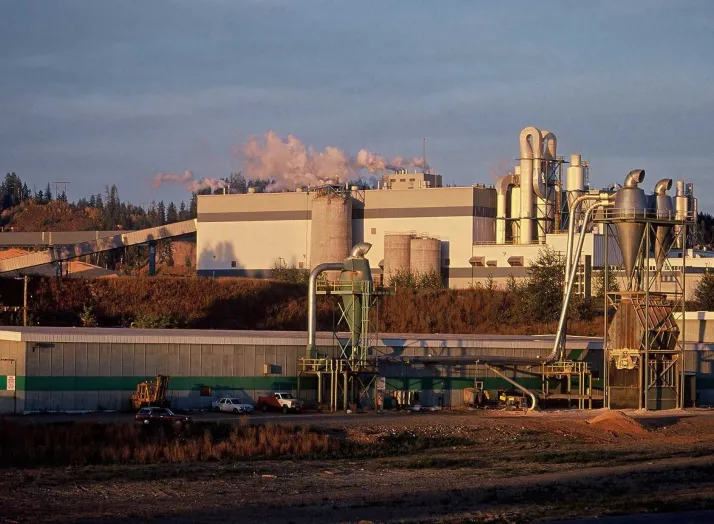

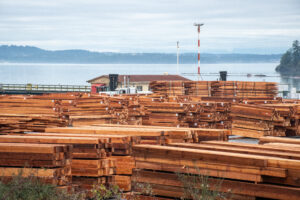 Western Forest Products says the temporary curtailment at its Chemainus sawmill will extend into the new year, while work slowdowns are expected at its other mills across Vancouver Island in December. The WFP curtailment in Chemainus began in June, affecting about 150 workers, with work yet to resume. …Meanwhile, reduced hours are expected at other work sites on the Island later this month. “In the latter half of December, we will take temporary downtime at our Saltair mill in Ladysmith, Duke Point mill in Nanaimo, and Cowichan Bay mill in Duncan,” said Babita Khunkhun, senior director of communications at WFP. “This will involve reduced operating hours, an extended holiday break and adjusted shift schedules.” Khunkhun says regular operations are expected to resume at all of those mills – except for Chemainus – on Jan. 6 “depending on market conditions and available log supply.”
Western Forest Products says the temporary curtailment at its Chemainus sawmill will extend into the new year, while work slowdowns are expected at its other mills across Vancouver Island in December. The WFP curtailment in Chemainus began in June, affecting about 150 workers, with work yet to resume. …Meanwhile, reduced hours are expected at other work sites on the Island later this month. “In the latter half of December, we will take temporary downtime at our Saltair mill in Ladysmith, Duke Point mill in Nanaimo, and Cowichan Bay mill in Duncan,” said Babita Khunkhun, senior director of communications at WFP. “This will involve reduced operating hours, an extended holiday break and adjusted shift schedules.” Khunkhun says regular operations are expected to resume at all of those mills – except for Chemainus – on Jan. 6 “depending on market conditions and available log supply.”
 VANCOUVER, BC
VANCOUVER, BC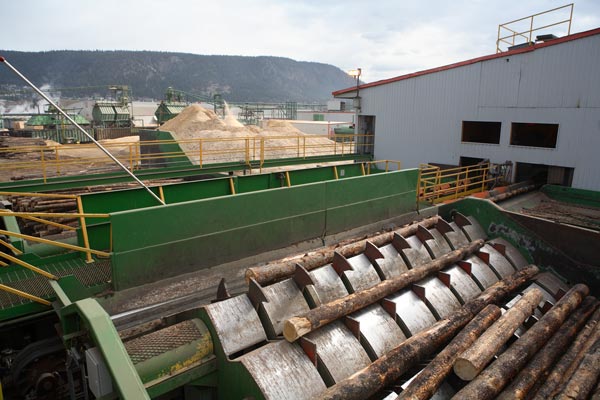

 When it comes to what ultimately lies behind Crofton’s impending closure, previous BC Liberal and NDP governments past and present all have much to answer for. Both were at the helm as tumultuous changes rocked BC’s forestry sector. And both did little of consequence in response. The result is not only pain for workers and their families, but a big economic hit for local government. …The first change that governments ignored was the disintegration of what were once highly integrated forest companies. At one point, each of B.C.’s three remaining coastal pulp mills — Crofton, Harmac and Howe Sound — were part of a continuous production chain owned by the same company. In the case of Harmac and Crofton, that company was MacMillan Bloedel, while Howe Sound’s pulp mill was co-owned by Canfor. With integrated companies, all aspects of production from the tree standing in the forest to final products were linked.
When it comes to what ultimately lies behind Crofton’s impending closure, previous BC Liberal and NDP governments past and present all have much to answer for. Both were at the helm as tumultuous changes rocked BC’s forestry sector. And both did little of consequence in response. The result is not only pain for workers and their families, but a big economic hit for local government. …The first change that governments ignored was the disintegration of what were once highly integrated forest companies. At one point, each of B.C.’s three remaining coastal pulp mills — Crofton, Harmac and Howe Sound — were part of a continuous production chain owned by the same company. In the case of Harmac and Crofton, that company was MacMillan Bloedel, while Howe Sound’s pulp mill was co-owned by Canfor. With integrated companies, all aspects of production from the tree standing in the forest to final products were linked.
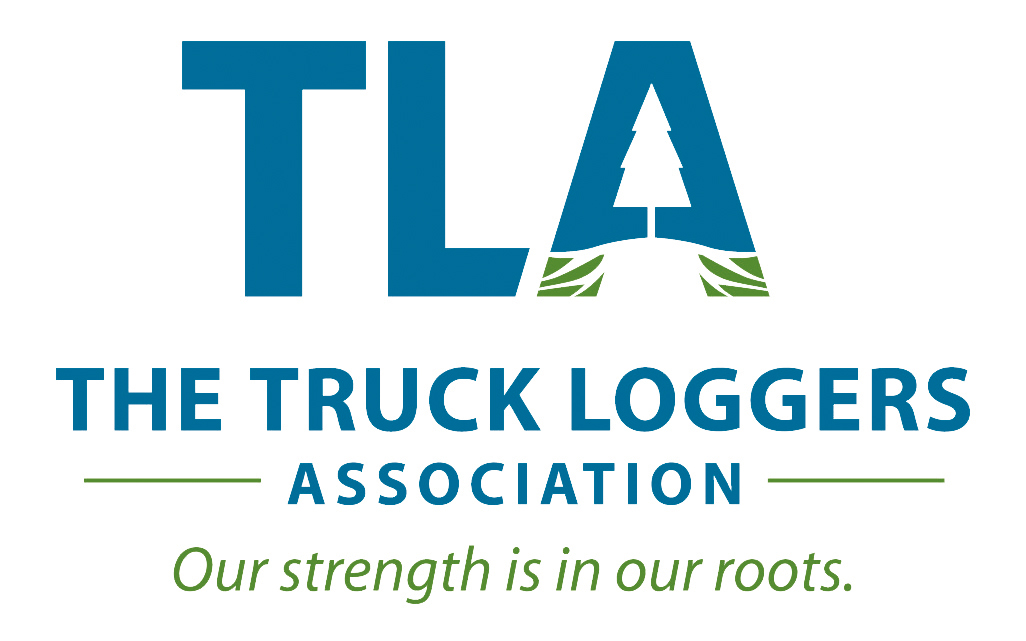 Domtar’s announcement of its Crofton pulp and paper mill closure was a major and far-reaching loss for its workers, the North Cowichan community, and the broader forest-industry supply chain across the BC Coast. It is especially difficult knowing that this closure was preventable. Industry, labour and municipal governments have been warning the BC government about the risk of mill closures for many months. The government was given numerous recommendations, solutions, and opportunities that could have helped avoid this outcome, but has largely failed to act with the urgency that was required. …This closure underscores the many challenges facing BC’s coastal forest sector: ongoing constraints on access to economically viable fibre, an uncompetitive business cost structure, and regulatory uncertainty. For TLA members, these pressures threaten the stability of their operations and the forestry-dependent communities they support. The TLA remains committed to working with government and industry partners to stabilize the sector…
Domtar’s announcement of its Crofton pulp and paper mill closure was a major and far-reaching loss for its workers, the North Cowichan community, and the broader forest-industry supply chain across the BC Coast. It is especially difficult knowing that this closure was preventable. Industry, labour and municipal governments have been warning the BC government about the risk of mill closures for many months. The government was given numerous recommendations, solutions, and opportunities that could have helped avoid this outcome, but has largely failed to act with the urgency that was required. …This closure underscores the many challenges facing BC’s coastal forest sector: ongoing constraints on access to economically viable fibre, an uncompetitive business cost structure, and regulatory uncertainty. For TLA members, these pressures threaten the stability of their operations and the forestry-dependent communities they support. The TLA remains committed to working with government and industry partners to stabilize the sector…










 The effect of 10% tariffs on Canadian wood imports was the subject of a public hearing before the state’s Maine-Canadian Legislative Advisory Commission Wednesday. Dana Doran is executive director of the Professional Logging Contractors of the Northeast who says his members are struggling to stay afloat. “If they buy wood from Canada it’s hit by a 10% tariff on those raw logs. If they export any of their finished product they’re subject to any of the export tariffs,” Doran said. “So we’ve seen a chaotic situation that has occurred over the past 8 weeks because of the situation with tariffs.” Doran says if the U.S. had more domestic manufacturing of building and construction products it would have a bigger share of the marketplace, which could blunt tariffs. But Canada, he says, has 60% of that market.
The effect of 10% tariffs on Canadian wood imports was the subject of a public hearing before the state’s Maine-Canadian Legislative Advisory Commission Wednesday. Dana Doran is executive director of the Professional Logging Contractors of the Northeast who says his members are struggling to stay afloat. “If they buy wood from Canada it’s hit by a 10% tariff on those raw logs. If they export any of their finished product they’re subject to any of the export tariffs,” Doran said. “So we’ve seen a chaotic situation that has occurred over the past 8 weeks because of the situation with tariffs.” Doran says if the U.S. had more domestic manufacturing of building and construction products it would have a bigger share of the marketplace, which could blunt tariffs. But Canada, he says, has 60% of that market. MANCHESTER, Tennessee – Several US sawmills are struggling to stay open after industry leaders said years of trade uncertainty have drained export markets and tightened margins. The Hardwood Federation estimates at least one sawmill is going out of business every week. Additionally, the National Hardwood Lumber Association (NHLA) reported that more than 4% of U.S. sawmills have been lost due to closures and consolidations. The equipment from those sawmills ends up in a growing pile of auction fliers on Johnny Evans’ desk at the Evans Lumber in Manchester, Tennessee. However, Evans is desperate to save his sawmill from being auctioned off due to ongoing trade talks. …Evans said a lot of this goes back to trade tensions that began in 2018, during the first Trump administration. That’s when some countries, like China, stopped buying American hardwood in retaliation to President Donald Trump’s tariff policies.
MANCHESTER, Tennessee – Several US sawmills are struggling to stay open after industry leaders said years of trade uncertainty have drained export markets and tightened margins. The Hardwood Federation estimates at least one sawmill is going out of business every week. Additionally, the National Hardwood Lumber Association (NHLA) reported that more than 4% of U.S. sawmills have been lost due to closures and consolidations. The equipment from those sawmills ends up in a growing pile of auction fliers on Johnny Evans’ desk at the Evans Lumber in Manchester, Tennessee. However, Evans is desperate to save his sawmill from being auctioned off due to ongoing trade talks. …Evans said a lot of this goes back to trade tensions that began in 2018, during the first Trump administration. That’s when some countries, like China, stopped buying American hardwood in retaliation to President Donald Trump’s tariff policies.